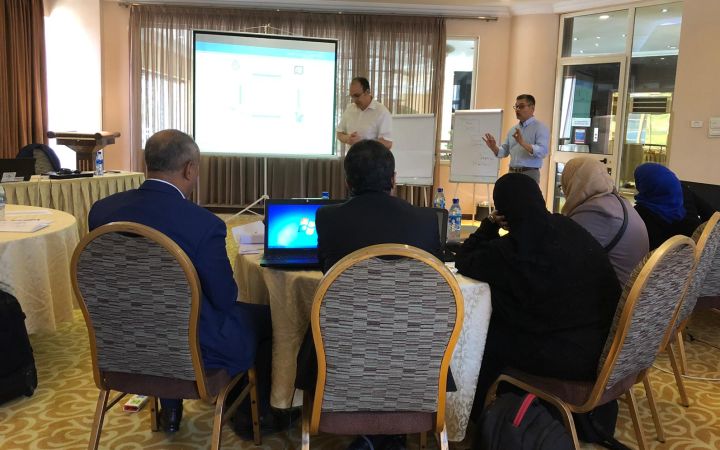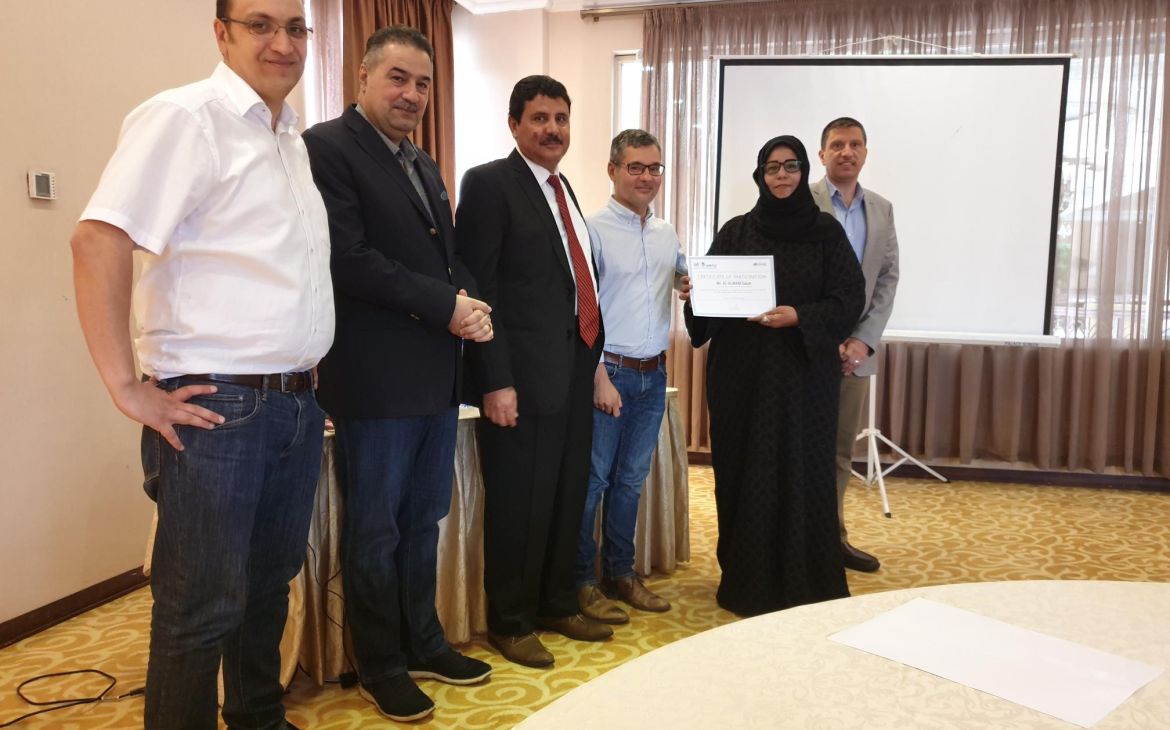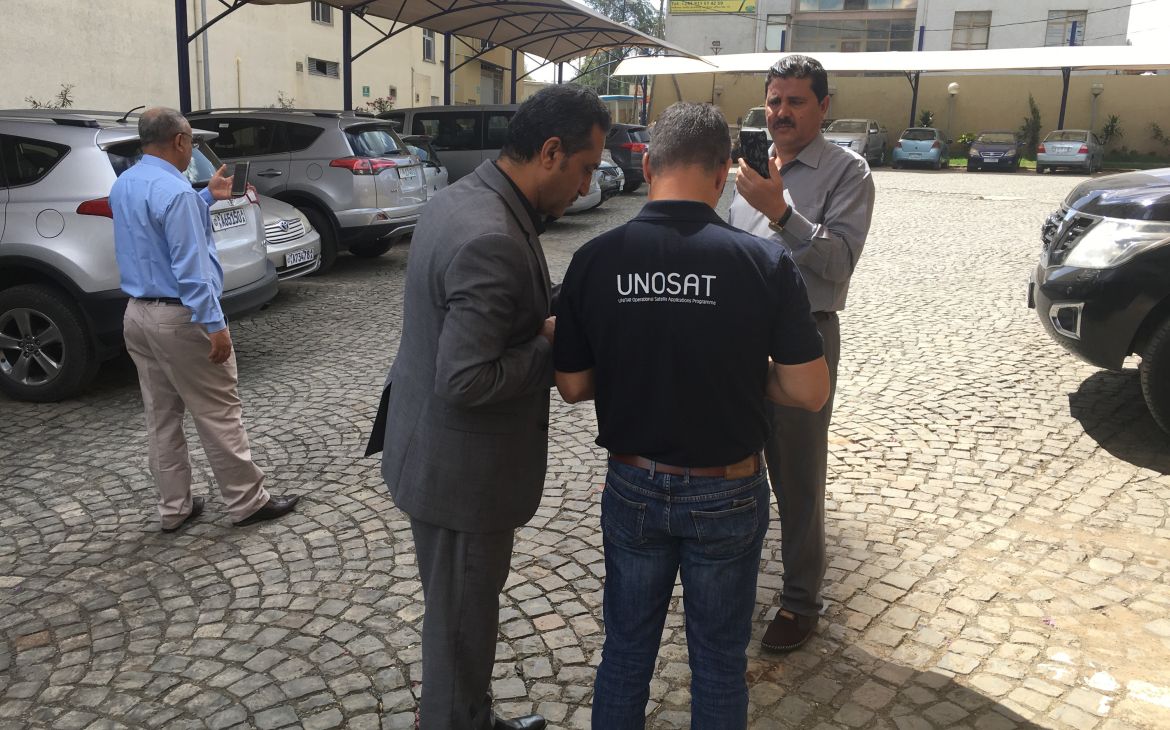17 May 2019, Geneva, Switzerland – For a full week, between 1 and 7 May 2019, OHCHR and UNOSAT organized a training for members of Yemen’s National Committee to Investigate Alleged Violations of Human Rights (NCIAVHR) and representatives from the Office of the United Nations High Commissioner for Human Rights (OHCHR). This programme, which took place in Addis Ababa, Ethiopia, focused on the use of geospatial tools to investigate alleged violations of International Humanitarian Law.
According to OHCHR, at least 16,706 civilians were killed during the conflict in Yemen between March 2015 and June 2018. The situation was still critical by early 2019. Resident Coordinator Lisa Grande declared on 8 April 2019 “the people who are the most vulnerable and who need our help and compassion the most are the people paying the highest price for this terrible conflict”.
Recent developments in earth observation technologies such as the growing number of satellite sensors orbiting the earth and the increase in freely available data offer investigators new tools to monitor the situation and corroborate alleged incidents. However, knowing where to look for the right data and how to analyze it can prove a daunting task for non-experts. This training aimed at strengthening the participants’ awareness and technical capacity in this area. It was also the first time that UNOSAT gave such an advanced course on the topic of human rights violations.
Following introductory lectures to provide a basic understanding on Geographic Information System (GIS), the course focused on practical sessions covering how to access relevant cloud-based solutions and perform contextual analysis. Participants were able to take an active part in the training through lab exercises and guided assignments. A strong focus was put on real in-country case scenarios and pre-selected geospatial analyses conducted in Syria, Iraq and Yemen. UNOSAT trainers put a strong accent on interactivity making sure that face-to-face interactions took place in Arabic and by asking learners to expose some examples of their choice for further discussion.
The group consisted of nine trainees, seven of which were Yemeni officials members of the NCIAVHR with the remaining two being OHCHR staff. After the training, the participants’ competency in all learning objectives increased evenly and to a significant extent. One participant stated that “the training was excellent and rewarding. Trainers made significant efforts to fulfill their role to the fullest. The methodology was also very relevant.” Another one suggested to “make another similar session for observers and investigators of the Commission”.
[1] Situation of human rights in Yemen, including violations and abuses since September 2014 ((A/HRC/39/43), published 17 August 2018
[2] Yemen: 11 more ‘terrible, senseless’ civilian deaths reported, following attack in Sana’a, UN News, published online on 08 April 2019




